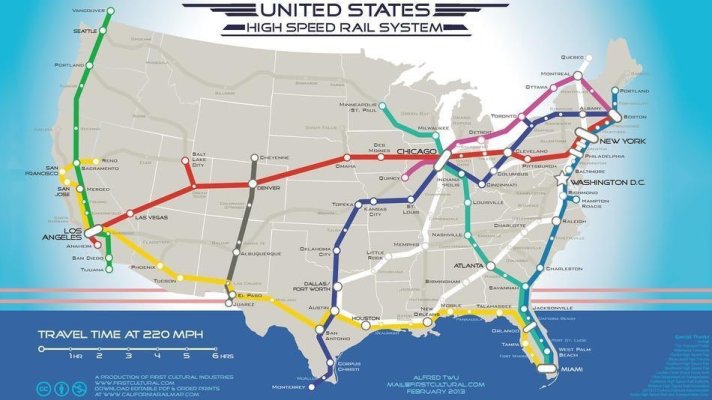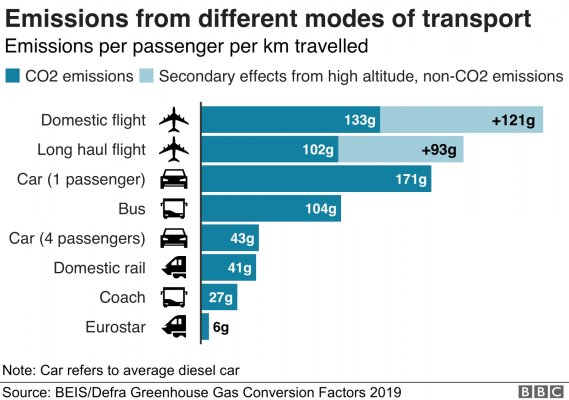It sounds great in theory, and there are places in the US where it might work, but as a whole, I'd have to say no. This country is just too spread out, and too car-dependent to make it work, in my opinion. Passenger rail in this country proved it was not all that viable in the 70's hence the arrival of Amtrak. And from what I've heard, the only portion of Amtrak that turns a profit is the Northeast Corridor (DC to Boston). The rest of it operates at a loss.
Don't get me wrong, I would love to see it work. But I'm sure the fantasy vision I have of it in my head is a far cry from how it would actually play out, if built. Heck, we can't even maintain the current infrastructure very we currently have, so I'd hate to see how we'd take care of something high-tech like high-speed rail.
Plus, from what I've heard, China is building highways at a much higher rate than high speed rail. As the country becomes more prosperous, it's becoming more car-dependent.
There's been talk of a high-speed Maglev train between DC and Baltimore. From what I've read, it would be able to make the trip in about 15 minutes (Union Station in DC to Penn Station in Baltimore, I'm guessing). Sounds nice. BUT, the Amtrak Acela already does that in about 32 minutes. There's also something called the Northeast Regional that does it in about 45 minutes. And even the MARC, a commuter train with a number of stops in between, does it in about 64 minutes. Which, incidentally, is about the same amount of time Google maps estimates would take to drive it.
I remember a few years back, flying to Aruba from BWI, and there was a transfer in Fort Lauderdale. For some reason I'm thinking it only took about 90 minutes to fly there, but I just checked times, and they say it's actually around 2 hours and 40. Although, I might have just been thinking of from the moment the plane takes off, to when it touches the ground...you spend a lot of time taxiing around, getting ready for takeoff, etc that's going to add time.
Anyway, for comparison, I just checked Amtrak. They have two trains per day going to Fort Lauderdale, and the quickest is about 28 hours. Googlemaps estimates 15 hours and 39 minutes to drive it. But that's probably not realistic, since you'd have to refuel, stop to eat, rest, etc, and you know full well there are going to be accidents, construction, heavy traffic, and other delays on the road.
I wouldn't want to drive it, unless I had plenty of time, and was going to plan a few stops along the way. But I dunno if I'd want to be stuck on a train for 28 hours, either! Now if a high-speed train could get me there in, say, 5 hours, and the procedures for boarding de-boarding are less aggravating than an airport, AND the price is comparable, I might be tempted. But, I just don't think it's going to be feasible.
I could see some stretches, such as between LA and San Francisco perhaps, being feasible. Or, the Amtrak Northeast corridor? But nationwide, I don't think it will ever be practical. And even in those short stretches I mentioned, the more stops it has to make, the less effective it is, overall.


